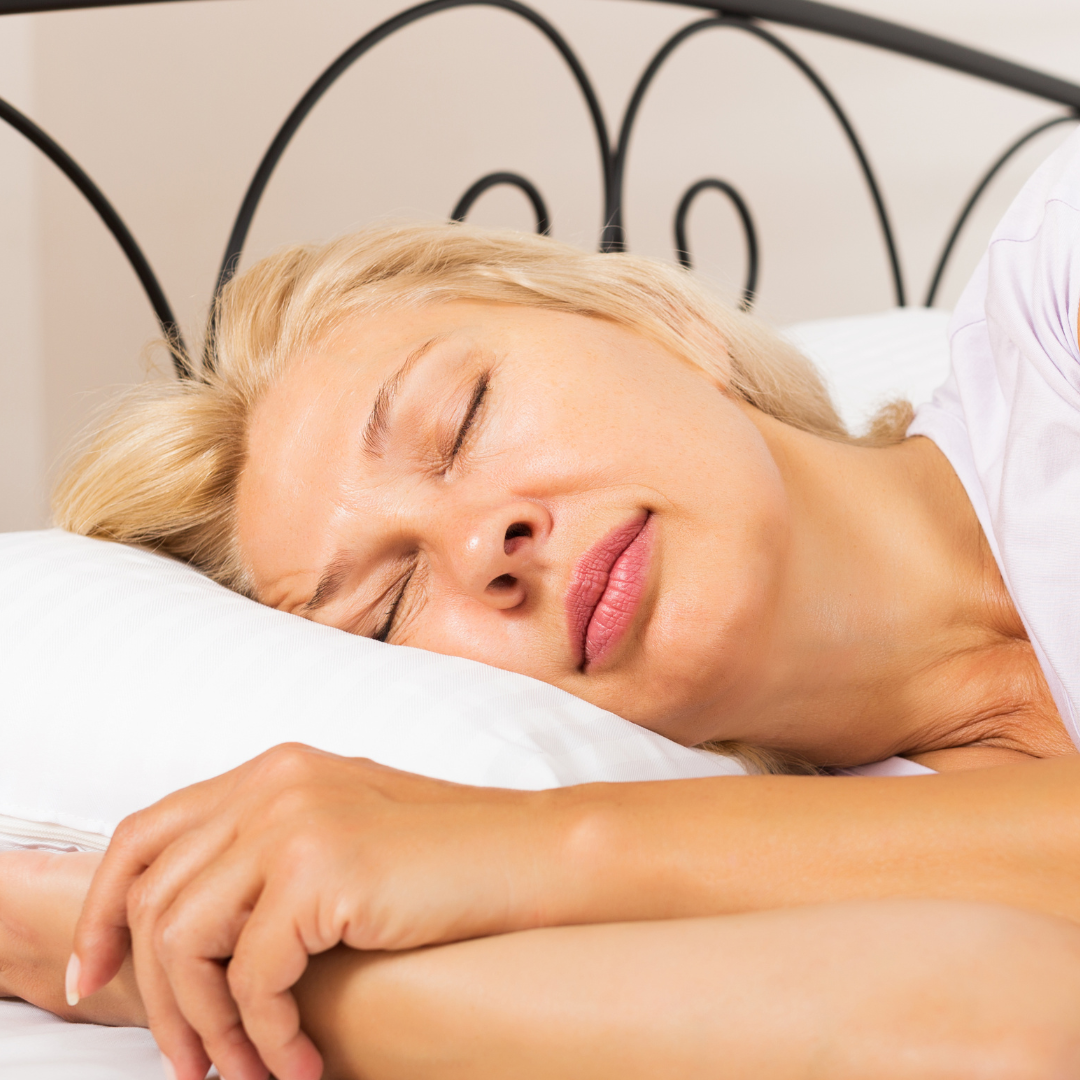Disrupted sleep is the second most bothersome symptom during the menopause. Lack of sleep has a widespread impact.
Regular sleep relies on your body’s natural circadian rhythm or body clock, which is mostly controlled by the hormone melatonin in response to exposure to daylight. Hot flushes, night sweats and disrupted circadian rhythm all contribute to sleep disturbances during perimenopause and menopause.
Many of the sleep disturbances around perimenopause and the menopause transition occur on a background of disordered sleep patterns established during the years before. These can be learned (and therefore, unlearned). We also have individual body clocks – night owls and early birds. On average, we probably want between 6 to 9 hours of replenishing sleep each night to be at our best.
Key Take Aways
Disturbed sleep impacts your mood as well as your energy
Lifestyle changes, supplements, prescribed hormones and other medications can help
Other resources
Sleep disturbance during menopause – Australian Menopause Society Fact Sheet
Factors disrupting sleep include
- hot flushes
- night sweats
- altered circadian rhythms
- reduced levels of melatonin with ageing
- high levels of emotional stress
- medical conditions such as sleep apnea
- restless legs
- noisy partners.
Some strategies to get a better night’s sleep
A good night’s sleep will do wonders for your mood and energy levels, especially during this time, so it is worth prioritising.
Lifestyle
- get outside in the sunshine early in the day
- regular exercise
- reduce your stress (yes, easier said than done, but see how you go)
- establish a relaxing bedtime routine
- go to bed and wake up at the same time every day
- finish up your screen time an hour before bed
- use an app to reduce blue screen light as the sun goes down
- make your bedroom a relaxing, cool, dark environment
- limit your alcohol intake
- wind up your caffeine use earlier in the day, including coffee, black or green tea, chocolate, energy drinks.
Hormones
Melatonin is a critical hormone in managing your natural circadian rhythm or sleep-wake cycle. It can be used to help support better sleep. Melatonin naturally declines as we get older but it’s also impacted during the hormonal chaos of menopause. Take 1.0-2.0 mg ideally 2 hours before bed.
Progesterone in the body-identical form of micronised progesterone can help induce sleep in menopausal women (this effect is not seen with the non-body-identical hormones known as progestogens). Progesterone alone can be used on a daily basis to help sleep. Take it at night.
Oestrogen therapy is a conventional treatment for menopausal sleep disruption, in particular with hot flushes and night sweats.
Supplements
Magnesium deficiency can lead to insomnia and leg cramps. Magnesium can come combined with glycine and taurine (both amino acids) which is even better – these both act on nerve cell receptors to calm them. Try taking 300 milligrams at night and find a preparation that has all these in combination.
Prescription sedatives
There are many sedatives on the market to help you get to sleep, however many have unwanted side effects of daytime drowsiness and impairing your body’s natural sleep cycles. It is also possible to develop a dependence for these prescriptions, making them redundant and you addicted. Best use them for only 1-2 nights at a time.
Orexin inhibitors can also be prescribed by your doctor (orexin is a wakefulness chemical).






